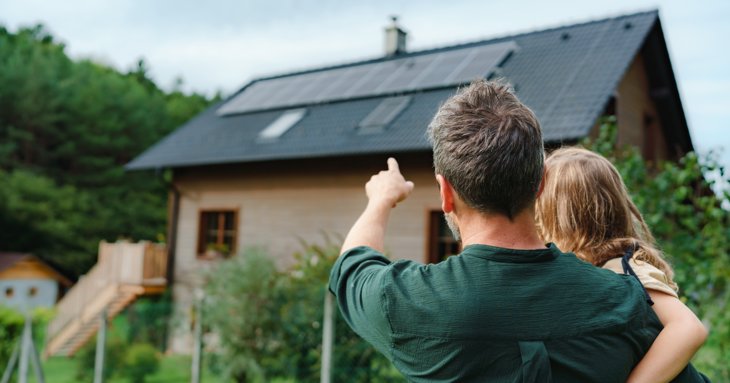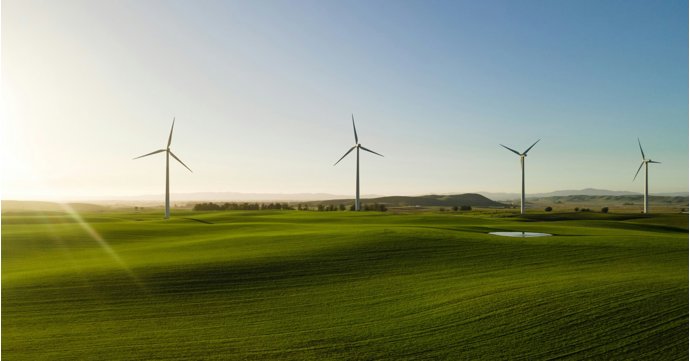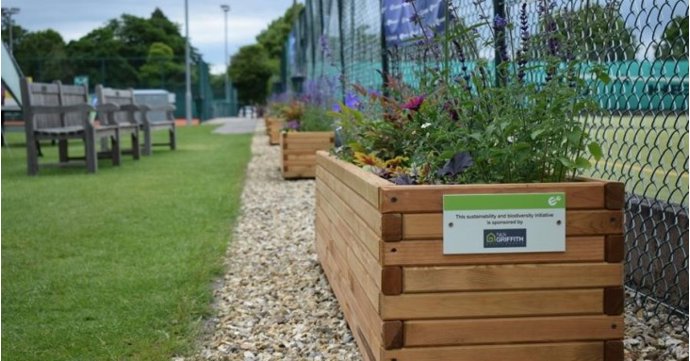Renewable energy is becoming a focus for many homeowners across Gloucestershire and the rest of the UK, with innovative technologies advancing year-on-year — and it couldn't come at a better time as the energy crisis continues to affect household bills.
Solar panels have been around since 1954, but were seen as largely inaccessible for many homes, due to being expensive or difficult to install.
They are now one of the most popular ways of producing renewable energy and are a common sight on the roofs of houses and businesses across the county.
Severn Wye Energy Agency has more than 25 years of experience advising Gloucestershire and South Gloucestershire homeowners on their sustainability journey. Its team offers comprehensive home energy audits and recommendations, including advice on whether solar is the way to go and the best tariffs to be on.
How do solar panels work?
There are two types of solar panel: solar photovoltaic (PV) panels, which produce electricity; and solar thermal panels, which produce hot water.
Solar panels capture the sun's energy using photovoltaic cells. When light shines on the cells it creates an electric field across the layers of semi-conducting material that make up the cells, which allows electricity to flow.
Hot water can also be produced from solar thermal panels through a solar diverter and a water cylinder; the diverter senses in real time how much energy is being generated and used and diverts the excess to heat water.
Solar thermal panels also capture the suns energy, but by using
evacuated tubes or flat plate collectors. The heat is used to heat the water in
a hot water tank or thermal store, this is then stored until needed by the
household.
Are solar panels expensive?
Renewable energy guide, The Renewable Energy Hub UK, reported that a solar panel system combined with a battery can reduce the average UK household energy bill by up to 70 per cent.
Fifteen years ago, a typical solar panel installation in the UK could easily exceed £20,000. Today, system installation prices can start from just £3,500.
Are solar panels worth it?
Contrary to popular belief, solar panels don't need direct sunlight to work and can still generate some electricity even on cloudy days — which is helpful to know given the irregularity of British weather.
Solar PV systems are made up of several panels, with each generating up to 335 watts of energy in strong sunlight — power that can be used throughout the home, with an average sized house with a 27-metre roof space seeing a yearly saving of up to £608 per year, according to The Renewable Energy Hub UK.
Households can also make back some money by selling excess energy to the National Grid, thanks to a government-backed initiative called the Smart Export Guarantee (SEG).
A Microgeneration Certificate Scheme certificate and an export meter capable of providing half-hourly export readings is needed to access this scheme — note that not all suppliers are part of the scheme, but it's easy to switch if needed.
Those interested can visit the Ofgem website to access the list of current SEG Licensees.
Can I install solar panels in my property?
There are a few things to consider, such as whether the property's roof may need structural work before installation; whether the house is obscured by trees; which direction the home is facing — as north-facing houses will see little benefits — as well as the structure of older houses.
Once solar panels are installed, there may be a need to think about electricity habits at home. For example, when the system is working consistently on a sunnier day, that would be the time to do the laundry or fill up the dishwasher.
For full advice and confirmation as to whether your property could benefit from sustainable energy products such as solar panels and heat pumps, apply for a free bespoke, impartial report from a home energy expert from Severn Wye Energy Agency — worth more than £650 — by visiting severnwye.org.uk/sga.
Please note that the free report from Severn Wye Energy Agency is subject to application criteria and funding availability.





















